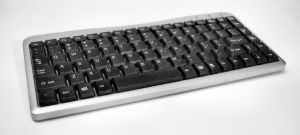Easy Computer Buying Guide

Once upon a time, consumers bought computers for work or simple tasks such as word-processing or budgeting. However, nowadays, a computer is used for everything from email to talking to friends and family in real time, editing photos and videos, or using it as the base of your home entertainment system. Computers are doing much more than ever before, and almost any new computer you may have in mind will be able to perform all of the above. Most computers have enough power. speed, disc space, and memory to handle everyday tasks.
However, if you know that your computer will be used for extensive game playing, to do a lot of graphics work or hold a gazillion photos, you may want to look for something a little more specific. Higher end computers which are amazingly fast are more affordable than ever before. Chances are that you’ll be able to find a computer which will handle everything you want to do and still stay well within your budget.
Speaking of budget, what is your budget? That’s the first thing you’re going to have to figure out. Once you know how much you’re going to spend on your new computer, think about what it is that you’re going to expect your computer to do. Is it going to be the family computer, basically for surfing the Internet and checking your email? Are you going to be running a lot of games on it? Is it going to be mostly used for simple work tasks?
Next, how much room do you have for your new computer? There are some computers which are made specifically to fit into tight areas. A small-form-factor is a small computer, which may be handy if you don’t have a lot of space. However, because the tower is smaller, there are less options for upgrading in the future. If you have plenty of room, then a full sized desktop is a great choice. A full sized desktop has plenty of slots and room inside for upgrading as time passes.
It can be confusing to try to decide what kind of processor works best. Although the majority of them do their job well, you’ll want to ensure that it runs fast enough. Nowadays any processor should do just fine for “basic” needs. If you have the money available, you can get processing speeds which will literally amaze you! On the other hand, you don’t have to spend a fortune. Most computers are equipped to perform just fine. If you need to trim your budget, you can cut back a little on the processor as long as you’re smart about it.
Just like the processor, your RAM (random access memory) isn’t usually expensive. Most software and programs require a good amount of it. Since it usually doesn’t cost much, this is something you want to ensure you have plenty of. The minimum you should look for is 1GB or 2GB for Vista. However, there are plenty of computers which come with 1-2 GB or more. If you’re using Windows XP, make sure you get one with at least 512MB.
If you’re going to be doing a lot of stuff with graphics or playing games, you should consider buying a computer that has video graphics card which stands on its own. A lot of computers use an integrated graphics card, which means it runs on the same memory as everything else. Buying one with a graphics/video card which has its own memory will save you the heartache of your computer lagging behind as you’re trying to complete your game’s mission.